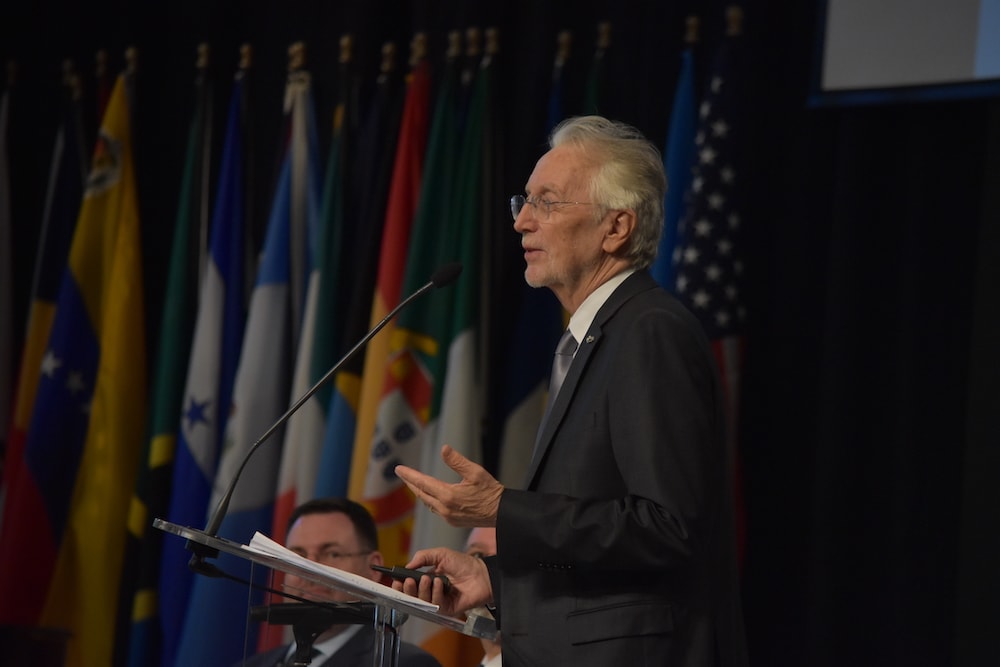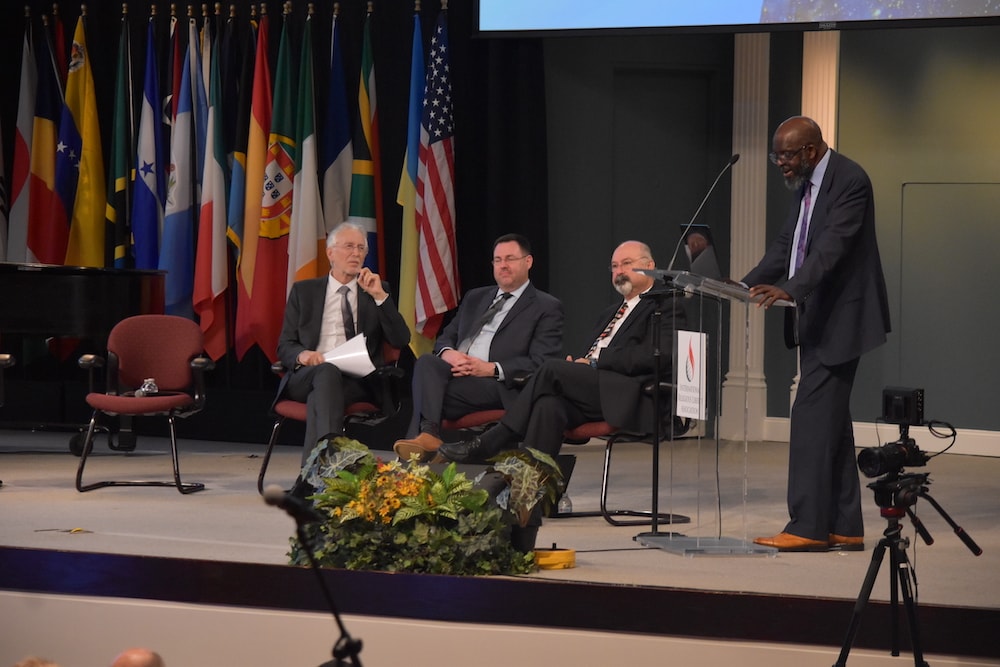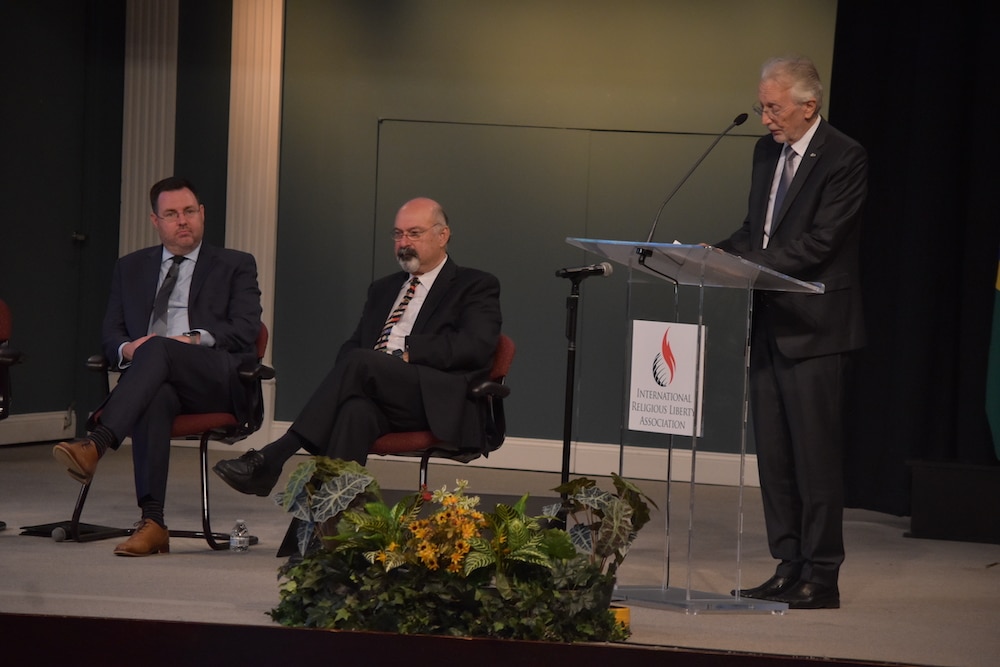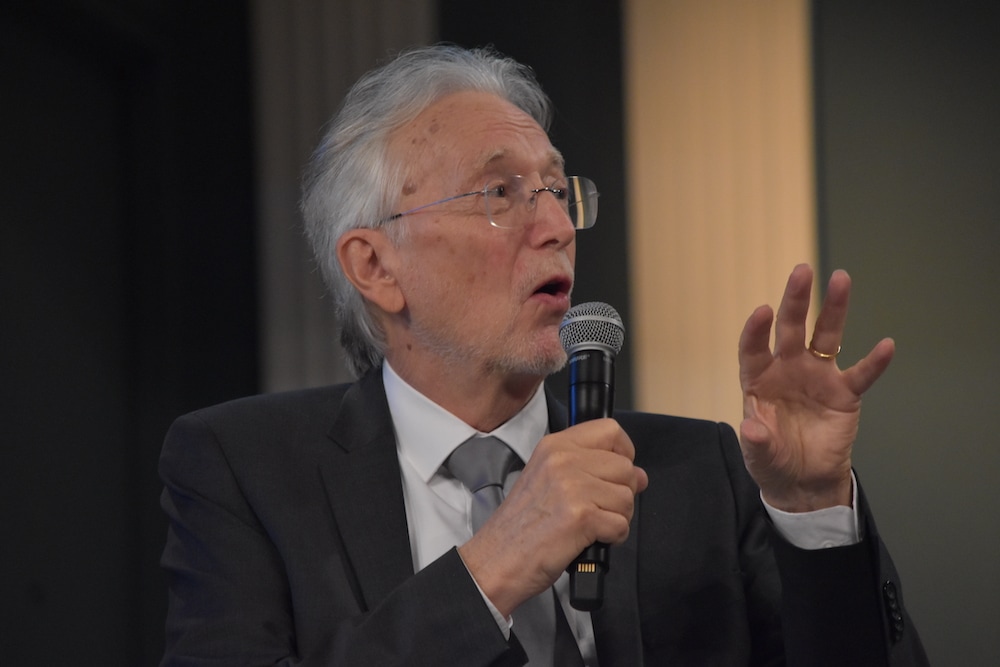
Augustine of Hippo (354–430 AD) left an incontrovertible legacy, John Graz, former International Religious Liberty Association (IRLA) secretary-general, said in a presentation to the recent 9th IRLA World Congress in Silver Spring, Maryland, United States.
Augustine is often described as one of the most significant thinkers after the apostle Paul, and influenced other Christian thinkers such as Anselm, Thomas Aquinas, Martin Luther, and John Calvin, he added. In his August 22 presentation, Graz reflected on Augustine’s shifting position on religious freedom, which went from advocating tolerance to persecution of dissenters.
“Augustine experienced the tension between aspiration to freedom and the reality imposed by the religious authorities of his time,” Graz said. “But the question we need to ask is, How did a man of his stature go from opposing persecution to justifying it? Why did he end up getting the infamous title of theorist of the Inquisition?”
In the following minutes, Graz attempted to provide the background for this shift.
Based on Biblical Principles
In his earlier years, Augustine promoted a peaceful approach and held to the Christian principles of the first centuries, Graz told congress attendees. He explained that the principle had been outlined by Lactantius, Constantine’s adviser, who had written, “Religion is a matter of will. It cannot be imposed by force.… There’s no union possible between truth and violence, justice and cruelty.”
Even if the conversion of heretics is a moral obligation, at the beginning Augustine claimed that it had to be done by discussion and demonstration in a peaceful way, Graz said. But unfortunately, he added, such an open position wouldn’t last for long.
Forcing Expected Results
In time, when Augustine discovered that a spirit of openness did not produce the expected results, he saw that through violence and the sanction of authorities, some heretics were returning to the Christian church, Graz said. After witnessing that coercion indeed could bring people to return to what he believed was right, Augustine wrote, “Experience has shown us again that fear and pain have been beneficial to many in order to be instructed or to practice what they had already learned.”
Graz explained that from then on, “coercion becomes for [Augustine] a means for finding the truth and consequently salvation. The end justifies the means.” He added, “This is a sure step to crossing a red line. It leads to the cancellation of people’s rights in general and freedom of religion or belief in particular.”




Coercion as an ‘Act of Love’
Unfortunately for freedom of conscience and religious freedom, Augustine began to attempt to justify coercion, calling it “an act of love.” “What is, then, the function of brotherly love?” he wrote. “Does it, because it fears the short-lived fires of the furnace for a few, therefore abandon all to the eternal fires of hell?”
At the same time, Graz explained, the justification of coercion implies limits that love inspires. Augustine asked civil authorities not to execute or torture the heretics. “Our desire is that justice be satisfied without the taking of their lives or the maiming of their bodies in any part,” he wrote, according to Graz.
Augustine’s critics in his own day reminded him that such thinking implied denying the position of Jesus, the apostles, and even Paul, who never called on public force to persecute opponents. What was Augustine’s answer to those objections? He replied that in the days of the apostles, the princes and the empire were not Christian, Graz shared. Now they were, so it was expected that they put themselves at the service of the church, to preserve unity and truth.
Partnering with the State
American historian and journalist James Carroll wrote that “it was the late Augustine who, no longer depending on the force of reason, justified the use of coercion in defending, and spreading, the orthodox faith.”
Justifying persecution is one thing, Graz said. But Augustine went further by encouraging civil authorities to correct heretics. “Partnering with the State to persecute so-called heretics, dissenting voices, because of loyalty to their conscience, has plagued the history of the medieval church since Augustine,” he said.
Best Intentions Are Not Enough
Graz emphasized that having the best intentions is not enough to protect the rights of every person to freedom of conscience and religious freedom. In the case of Augustine, “[his] gradual drifting away from the teaching of Jesus, the apostles, and the Church’s Fathers are lessons to be learned,” Graz said. “His example is good for us. It teaches that good, even the best intentions of human beings and of society, are not a criterion of freedom and even less of truth.”